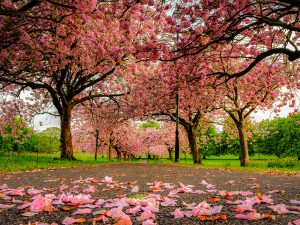
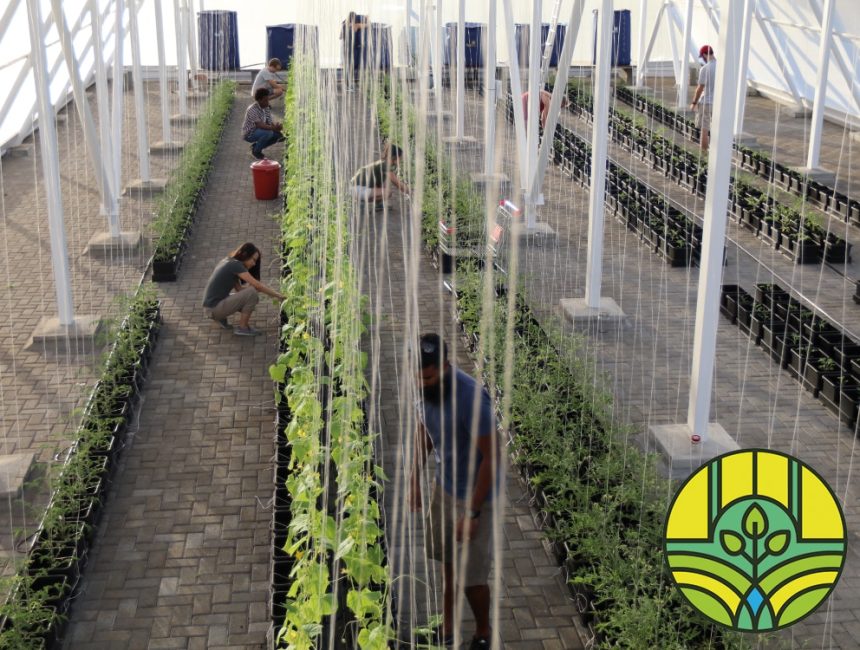
More great news from distant shores. Welcome to Farmcity, Mauritius where yet another group of innovative horticulturalists have embraced AutoPot Watering Systems. Farmcity builds modern farms for healthier communities. They’ve developed an easy-to-operate, modular farm model that enables great food to be grown completely naturally.
In this, our first look at Farmcity, I’d very much like to explore the organisation’s aims – wouldn’t you? Furthermore I want to know how islands such as Mauritius present farmers with great challenges and uniquely successful outcomes.
The ultimate aim for Farmcity is nothing less than an entire food system change. Founders Kelly-Ann Yeo and Wesley Oxenham believe the best way to achieve this aim is to build easy-to-operate, modern farms that anyone (especially those without a background in agriculture) can run. By opening up the possibility of productive, sustainable farming to a wider section of the population the viability of local farms increases. More local food = better accessibility for consumers. Everybody wins!
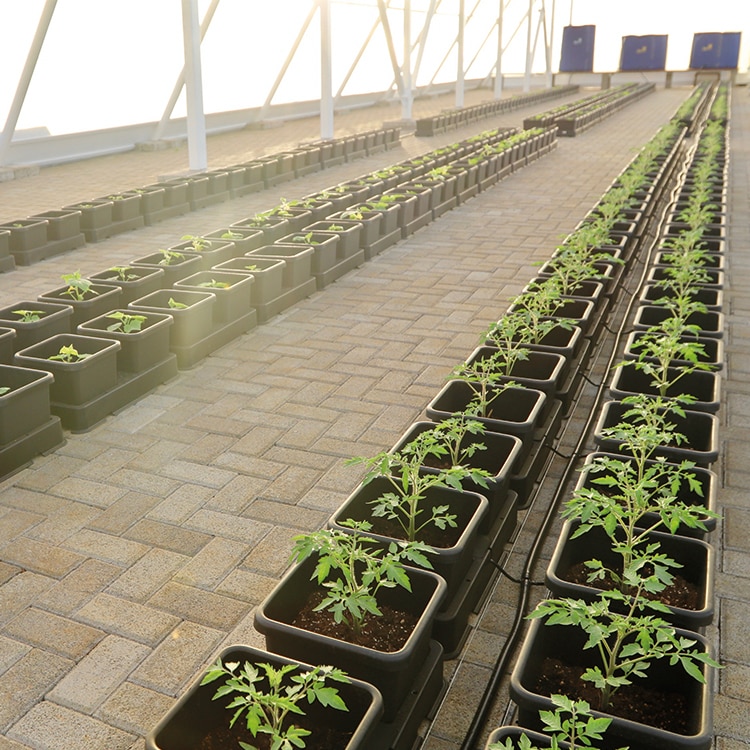
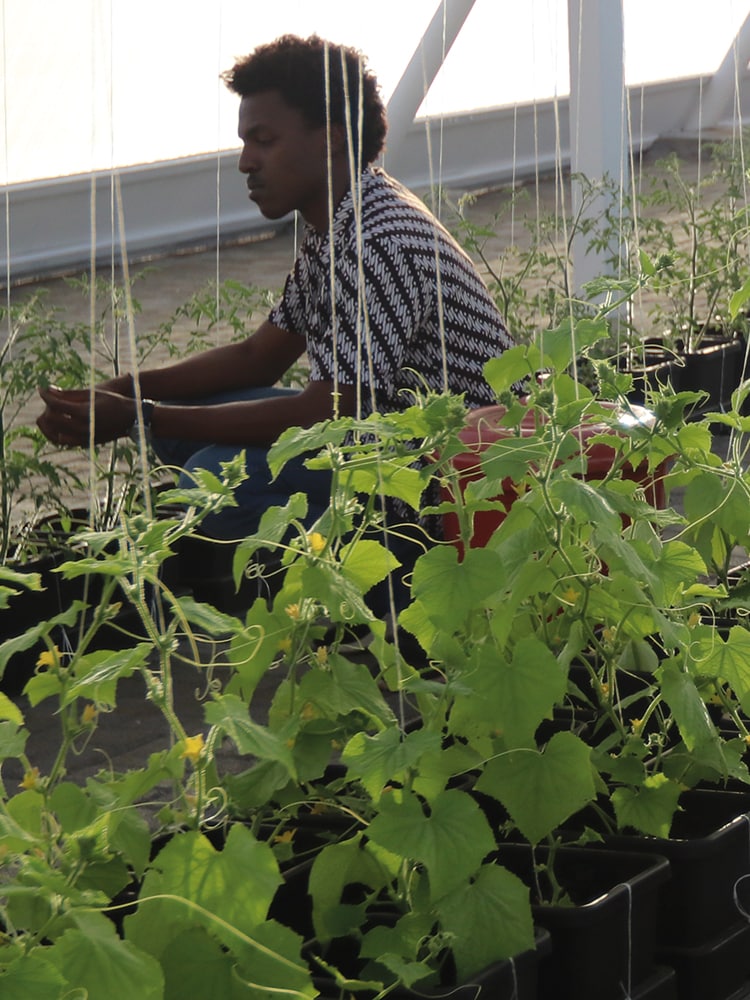
As an island, Mauritius faces specific problems relating to freshly grown produce. It is expensive to import and it is difficult to source quality soil and seeds in order to cultivate natively. In seeking to overcome these challenges, Farmcity hopes to set precedents for reversing outside food dependency worldwide. AutoPot easy2grow systems have been integrated within the cutting edge modular TropicBird greenhouse to create a sustainable, sheltered growing environment. The potential here is huge. If local food can be produced simply, affordably and in volume it is very difficult to see how equivalent foreign imports could possibly compete.
The changes you can make on the island are, potentially, very tangible. You really can measure the impact of improving self sufficiency – because the ocean and the cost of imports are relatively constant barriers to improving supply by other means.
So bringing about change is “just”(!) a case of perfecting a simple, sustainable, reliable, and high yielding growing technique. On an island.
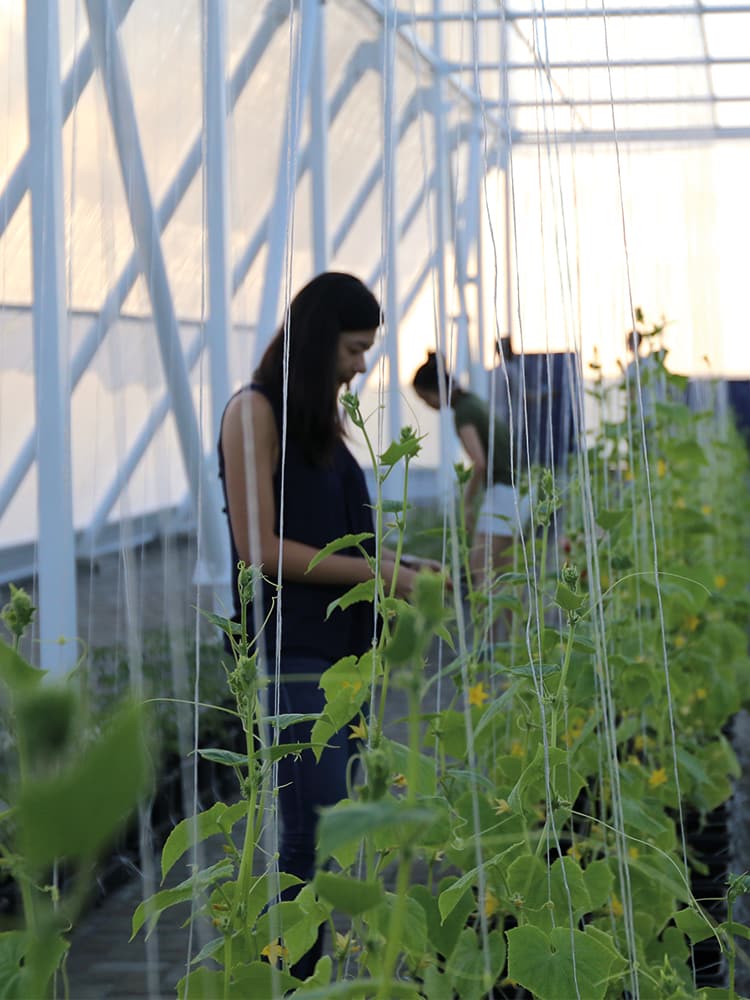
Creating and acquiring the hardware required for farming and getting it to Mauritius has required vision and determination. But once established on the island this hardware represents a solid launchpad. We’ll be revisiting the technology behind Farmcity in future newsletters but here you can get an idea of the strength required of The TropicBird greenhouse that houses Farmcity’s AutoPot Watering Systems. The TropicBird forms the extraordinarily svelte centrepiece of the farm but she’s a tough ol’ buzzard! The video was captured just after Cyclone Berguitta. You notice the TropicBird – which is clearly tough but doesn’t look hefty, then you look at the plants fruiting which would otherwise be strewn across the island. The greenhouse provides for itself and the system in which it is integrated thanks to passive ventilation and rainwater collection. Likewise the easy2grow systems represent a long-life, low maintenance irrigation system with few mechanical parts. The easy2grow systems require no electricity, pumps or timers to operate and devolve all responsibility for the regulation of feeding to the plants themselves. Thus the hardware once in place is fairly self-sufficient.
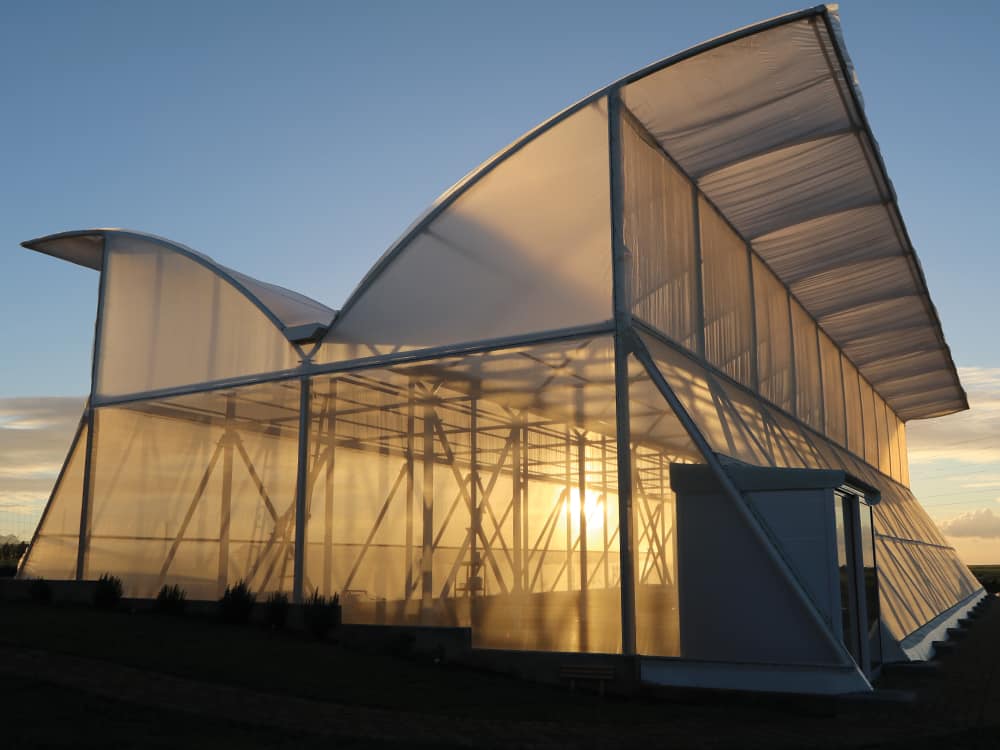
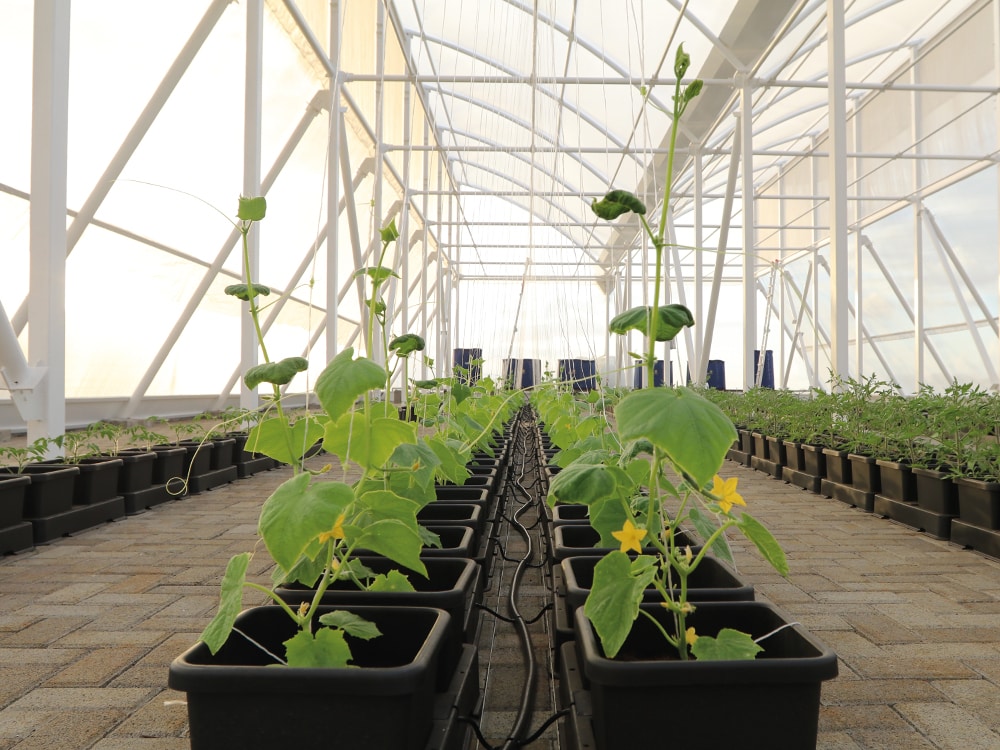
Establishing a stable supply of seeds, substrates and organic nutrients on the island has proved a more arduous battle. Whilst trials are ongoing the value of the crops and substrates inside the greenhouse is at least as important as the structure that shelters and helps them grow. It is hard to get reliable, good quality raw ingredients to Mauritius. Low-input seeds in a diverse variety, let alone organic seeds, are next to impossible to source. Cost of imports are very high, and there is also a lot of red tape surrounding agricultural imports that requires plenty of guesswork. Few people know what permits are needed, where they are to be sourced or how long they take to grant. However, once farming is successfully underway it should require little if any additional outside input. Seeds create seeds and a great deal of work is going into composting and ensuring that fresh, natively produced substrates will be on hand to replenish exhausted growing media. Where limited imports of organic supplements are required their size relative to current food imports means they barely register in comparison.
For more information about Farmcity, visit: www.farmcity.co
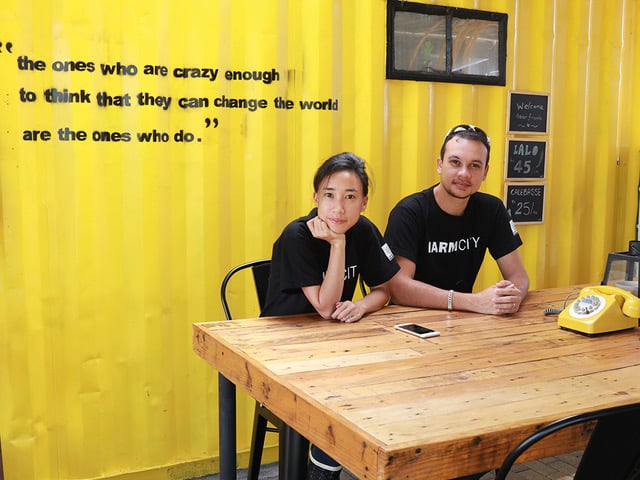
| Monday | 9AM-5PM |
| Tuesday | 9AM-5PM |
| Wednesday | 9AM-5PM |
| Thursday | 9AM-5PM |
| Friday | 9AM-5PM |
| Saturday | Closed |
| Sunday | Closed |